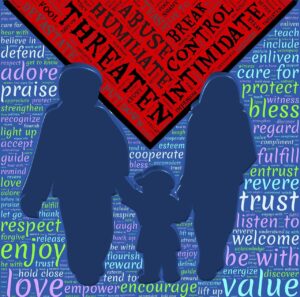While Alcoholics Anonymous (AA) has been helpful for many individuals struggling with alcohol addiction, it’s also true that
AA is not a right fit for everyone.
Here are some common reasons why people might not like or resonate with Alcoholics Anonymous:

Outdated Literature
AA’s “Big Book” has essentially remained the same since 1939! That’s ignoring almost 90 years of medical, cultural, and societal advancements in addiction recovery.

Sponsor Drama
AA’s fundamental concept of a sponsor is strange to many, and dangerous for a number of reasons including lack of qualifications, pressure from the organization, and lack of oversight.

One-size-fits-all?
You are unique – The AA program’s structured approach may not suit everyone’s needs or preferences. Some people may prefer more flexibility or a different style of support.

Anonymous?
If you’ve been to AA meetings, you’ll find that they’re not really very anonymous. In fact, many ‘old-timers’ who have been in the program for years actively disregard this importance.

Cult-like Mentality
Cults prey on individuals that are deparate and have lost everything. While AA is ‘supposed’ to be based on the principle of attraction vs promotion – it rarely feels that way.

No Professional Oversight
AA is a peer-led organization rather than a professional treatment program, which may raise concerns about the qualifications and expertise of those leading meetings.

Surrender of will & control
Some individuals may resist the idea of surrendering control to a higher power or accepting their powerlessness over alcohol, which are central tenets of AA’s philosophy.

An Identity stigma
Some people may feel stigmatized by the label of “alcoholic” and may resist participating in a program that emphasizes this as their primary identity – there is more to us than addiction.

Inflexibility & Dogma
AA’s strict adherence to the 12-step program, the concept of a higher power, and rejection of outside literature may not suit everyone’s needs or preferences.

An Identity stigma
Some people may feel stigmatized by the label of “alcoholic” and may resist participating in a program that emphasizes this as their primary identity – there is more to us than addiction.
Sobriety Science
Uncategorized
Top 10 Reasons People Hate AA
Uncategorized
Understanding Family Dynamics, Roles, and Rules
Uncategorized
Understanding Rumination in Addiction Recovery
Uncategorized
Effective Coping Skills in Addiction Recovery
Uncategorized
Relapse Prevention Strategies and Insights
Uncategorized
Exposure Therapy and Addiction Recovery
Uncategorized
Coping with Cravings in Addiction Recovery
Recommended Reading

The Happiness Trap
Russ Harris
Lorem ipsum dolor sit amet, consectetuer adipiscing elit, sed diam nonummy nibh euismod tincidunt ut laoreet dolore magna aliquam erat volutpat.









